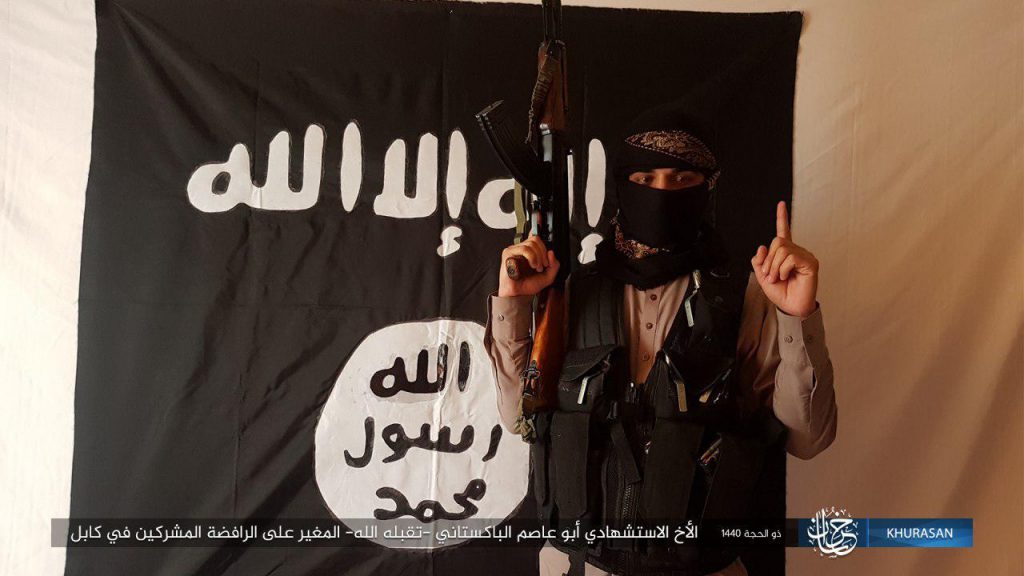Islamic State suicide bomber strikes wedding in Kabul

The Islamic State has claimed responsibility for a deadly suicide bombing at a hotel in Kabul. Scores of people were killed or wounded in the attack, the latest in a series of operations carried out by the jihadists in Afghanistan’s capital.
Abu Bakr al-Baghdadi’s representatives try to justify the massacre by arguing that the victims were Shiite “polytheists” and, therefore, supposedly deserving of death. The Islamic State has exported its sectarian program from Iraq to Afghanistan and elsewhere, repeatedly targeting Shiite civilians in an attempt to exacerbate religious tensions.
The group first issued a formal statement claiming responsibility for the terrorist operation, then a summary by Amaq News and finally an alleged photo of the bomber (reproduced above). The jihadists identify the mass murderer who blew himself up inside the hotel as Abu Asim al-Pakistani, a nom de guerre indicating that his origins are south of Afghanistan’s border.
Amaq News claims the attack led to 400 deaths and injuries, a casualty toll that seems to be higher than that included in independent reports. Still, press reports sourced to Afghan officials say that at least 63 people were killed and 182 were wounded.
Citing its supposed “security sources,” Amaq reports that the operation was two-fold. The Islamic State’s Khorasan province (ISIS-K) parked a car bomb in front of the hotel, while a “martyr wearing an explosive vest entered” a “large gathering of Shiites” in one of the hotel’s halls. After Afghan security and police forces responded to the Abu Asim al-Pakistani’s suicide bombing, the jihadists detonated the car bomb, thereby leading to more casualties and material losses.
The Islamic State and its predecessor organizations perfected this two-pronged bombing tactic in Iraq. It is easy way to drive up casualties.
The Islamic State’s jihadist rival, the Taliban, was quick to deny any responsibility for the mass killing in Kabul. A Twitter account operated by “Zabihullah Mujahid” (one or more men who serve as the Taliban’s spokesman) published a short message saying the “Islamic Emirate strongly condemns explosion targeting civilians inside a hotel in #Kabul city.” The message continued: “Such barbaric deliberate attacks against civilians including women & children are forbidden & unjustifiable.”
However, the Taliban’s terrorist operations frequently cause civilian casualties in Kabul and elsewhere. The Taliban is simply more concerned about how its attacks are perceived in the press and by the Afghan public. The Taliban claims that its Islamic Emirate represents all Afghans, but has also targeted Afghanistan’s Hazara minority in the past.
By contrast, the Islamic State has no such concerns about how its violence is portrayed, and deliberately targets Shiite civilians as part of its appeal to the ultra-radicals within the Sunni jihadist community who have a fetish for Shiite blood.
The Islamic State’s Khorasan arm has increasingly relied on what the United Nations Assistance Mission in Afghanistan (UNAMA) calls “suicide and complex” attacks. Such operations have accounted for an increasing share of civilian casualties in Kabul and elsewhere since Baghdadi’s men joined the fray several years ago. [See FDD’s Long War Journal report, Taliban and Islamic State cause majority of civilian casualties in Afghan war, UN finds.]
In more recent months, according to the UN, a bombing campaign conducted by the US and its allies has also increased civilian casualties.
